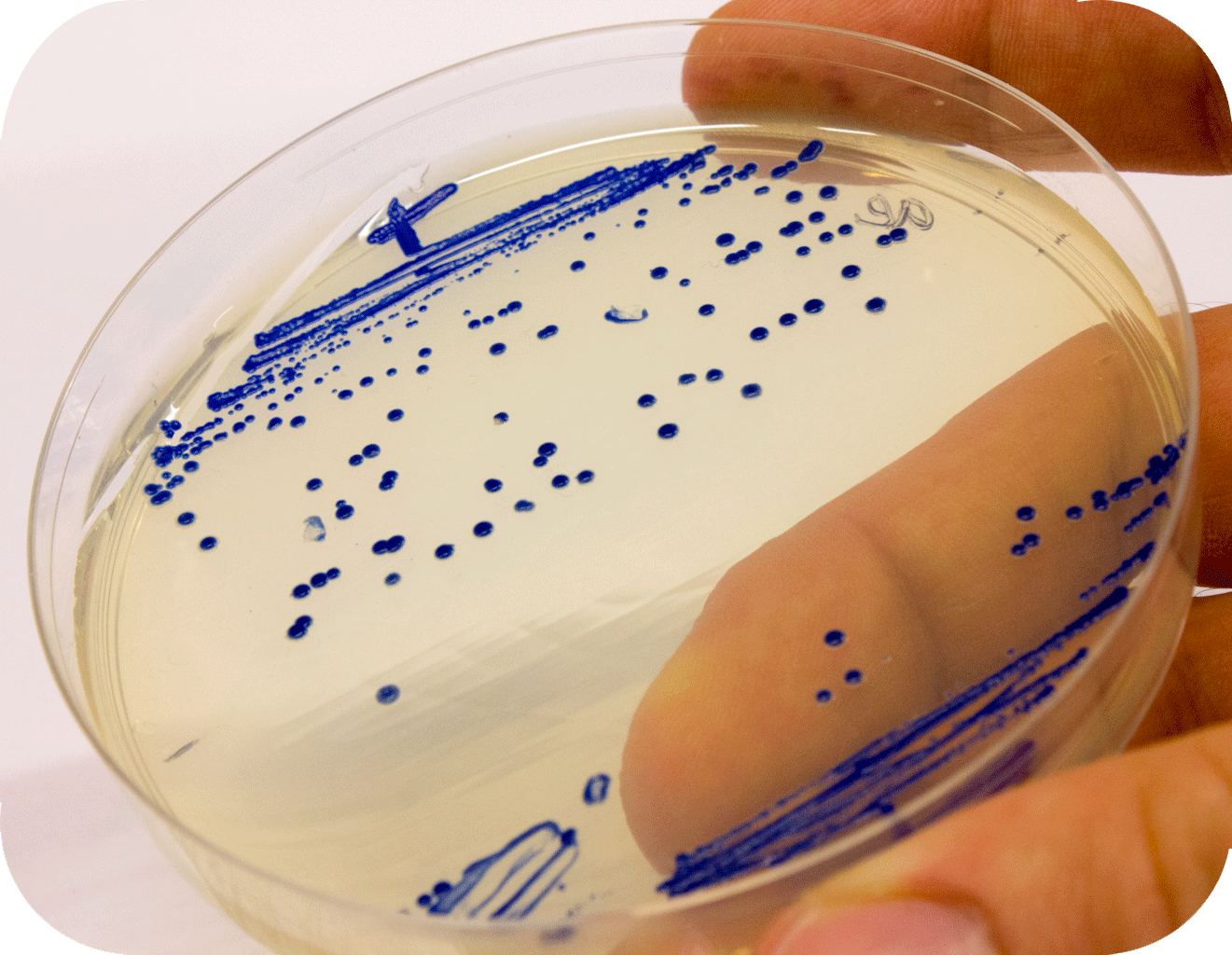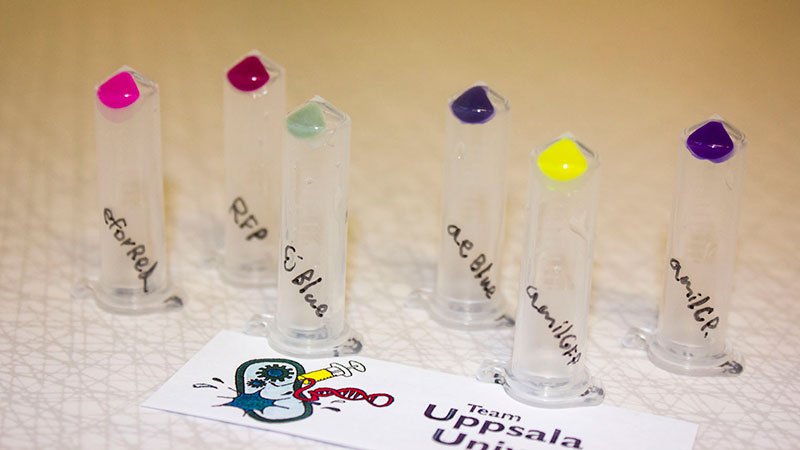Difference between revisions of "Part:BBa K864401"
(→Source) |
(→Source) |
||
| Line 5: | Line 5: | ||
===Source=== | ===Source=== | ||
| − | The protein was first extracted and characterized | + | The protein was first extracted and characterized by Shkrob et. al. 2005 under the name aeCP597. This version is codon optimized for '' E coli'' by Bioneer Corp. |
| − | + | Below to the left is the expressed aeBlue in ''E coli''. To the right comparison of aeBlue with other chromoproteins available from the registry. | |
| − | |||
| − | |||
| − | |||
[[Image:Aeblue_plate_small.jpg.png|360px]] | [[Image:Aeblue_plate_small.jpg.png|360px]] | ||
[[Image:UUChromo.jpg|500px]] | [[Image:UUChromo.jpg|500px]] | ||
Revision as of 00:36, 30 September 2012
aeBlue blue chromoprotein
aeBlue is a blue chromoprotein extracted from the basal disk of a beadlet anemone Actinia equina. The protein has an absorption maximum at 597nm and a deep blue colour. The protein aeBlue has significant sequence homologies with proteins in the GFP family.
Source
The protein was first extracted and characterized by Shkrob et. al. 2005 under the name aeCP597. This version is codon optimized for E coli by Bioneer Corp.
Below to the left is the expressed aeBlue in E coli. To the right comparison of aeBlue with other chromoproteins available from the registry.
References
[http://www.ncbi.nlm.nih.gov/pmc/articles/PMC1316306/]Shkrob, M.A., Yanushevich, Y.G., Chudakov, D.M., Gurskaya, N.G., Labas, Y.A., Poponov, S.Y., Mudrik, N.N., Lukyanov, S., Lukyanov, K.A., 2005. Far-red fluorescent proteins evolved from a blue chromoprotein from Actinia equina. Biochem. J. 392, 649–654.
Sequence and Features
- 10COMPATIBLE WITH RFC[10]
- 12COMPATIBLE WITH RFC[12]
- 21COMPATIBLE WITH RFC[21]
- 23COMPATIBLE WITH RFC[23]
- 25COMPATIBLE WITH RFC[25]
- 1000COMPATIBLE WITH RFC[1000]


